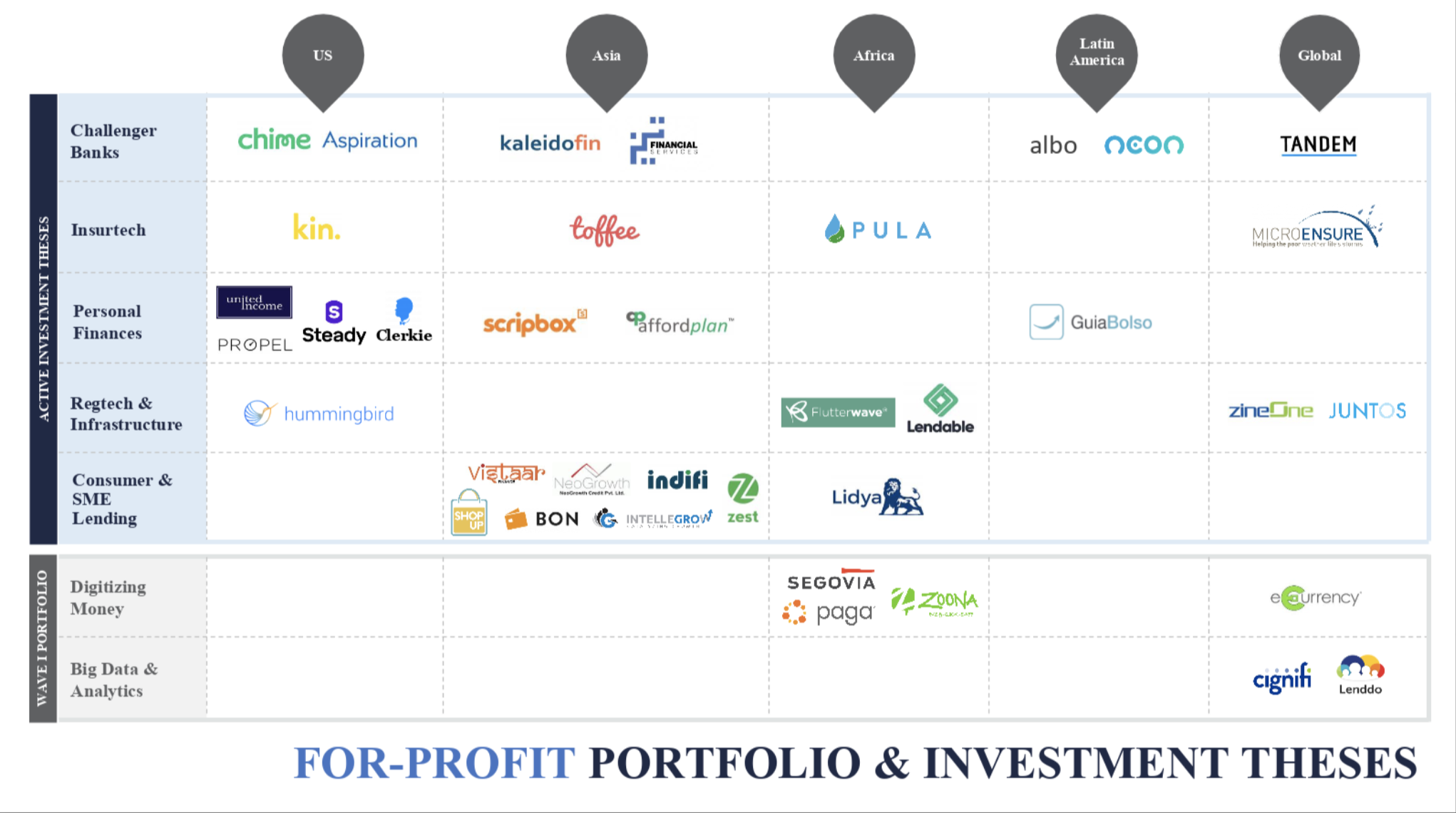After twelve years spent investing in impact-oriented financial services startups around the globe, the Omidyar Network, which serves as the family investment office for eBay founder Pierre Omidyar, is spinning off its financial inclusion investment arm as Flourish Ventures.
Equipped with up to $300 million in capital for operations and investments, the new Flourish will continue to invest around the Network’s core mission of backing companies with a dual focus on making a social impact and achieving quality financial returns.
Already, the new firm is one of the most active financial services investors globally, according to a report from FT Partners.
This double-bottom line approach has already yielded results for the company.
“After ten or twelve years with people becoming more broadly interested in the impact investment space, and we had an opportunity to reinvent ourselves,” says Tilman Ehrback, a managing partner at the newly independent Flourish.
Flourish is actually the third spinout from Omidyar Network’s investment and philanthropic arms. two years ago, Omidyar spun out its U.S. emerging technology initiative as Spero and then last year launched a governance and citizen engagement-focused group called Luminate.
Now the organization, financed by Pam and Pierre Omidyar will launch Flourish as the latest independent entity.
“We feel that we are the right team at the right place at the right time,” says Ehrbeck.
Flourish, he says, is launching into a financial services environment that looks far different than it did when the Omidyar Network first identified financial services and inclusion as a focus area for its operations.
In the wake of the global financial crisis, financial services organizations indicated that they could not, or would not, deliver necessary access to consumers and small businesses. There was an erosion of trust, says Ehrbeck, and against a backdrop of stagnating wages and the changing nature of work, low and middle income consumers and would-be entrepreneurs in emerging and established financial markets need all the help they can get.
Indeed, an entire generation of entrepreneur is leveraging a slew of technologies from blockchain, to the platforms that Omidyar’s network has helped create through its earliest investments in the market.
That includes companies like Lenddo, an online lender using alternative sources of social media data to determine the creditworthiness of applicants raised its first institutional capital in 2012 with capital from investors including the Omidyar Network. That investment and the company’s subsequent merger with another Omidyar Network company, EFL, is indicative of the formative role that Omidyar — and now Flourish — can play in the growth of a business.
“We knew each other for three years. As we were looking to identify and scale we started to look at where there synergistic opportunities between smaller companies and could we put something together that would allow us to grow,” says Lenddo chief executive Richard Eldridge.
That scaling has paid off in Lenddo’s expansion into more markets and a more robust product offering.
Stories like those repeat across the Flourish portfolio of companies and speak to the kind of value that the company provides to portfolio companies, said Eldridge.
Indeed, Flourish’s global portfolio holds at least 40 fintech companies helping low- and middle-income households and small businesses. From challenger banks like Chime, Aspiration, Neon, Albo, and Tez; to insurance technology companies like MicroEnsure and Kin; and asset optimization tools, including United Income and Scripbox.
Given the explosion of interest in financial services offerings across challenger banks and through insurance technology offerings, Ehrbeck said it was a no-brainer for the company to spin-out, focus, and potentially expand.
With the spinoff, Flourish is taking the existent $200 million portfolio that the team had built at Omidyar and expanding that with the additional capital commitment from the Omidyar Group.
The firm is also starting to realize its first exits. The firm realized a 3x return on its investment in Asian Networks and has had another exit in the sale of Ruma to Go Jek.
“It’s a carve out of a successful team that has momentum and that Pierre wants to double down on,” Ehrbeck says. “What’s carved out is the existing portfolio and a commitment to fund the next wave. The reason the number has a flexibility. Pierre gives us the capital we think we can deploy against opportunity.”
Flourish will do more than commit capital to financial services startups. It also has the opportunity to provide grants and encourage research around financial inclusion.
Some recent work from the firm included the financing of a study of 240 households called the U.S. Financial Diaries, which provided hard data around the illness that pervades a large swath of the U.S. population.
Investments from Flourish will fall into similar buckets as the firm’s previous operations under the umbrella of the Omidyar Network. Including alternative credit, challenger banks, insurance technologies, and low cost digital infrastructures that can level the playing field for financial services providers.

“We find a gap in the system and try to fill it and improve it,” says Arjuna Costa, another partner on the new Flourish team coming over from Omidyar’s financial services group.
“We have the impact of companies scaling and reaching and serving people and led to replicators and competitors and widespread adoption,” Costa says.
Lenddo and its credit-scoring business is a perfect example of the trend, according to Costa.
“We started investing behind a number of companies that were coming up with using nontraditional data sets to try and score people,” he said. “We picked different data sets… we invested in the pioneering company using mobile payment data, the pioneering company using social media data, and the pioneering company using psychometric data.”
As those companies gained traction and new customers, proving the market demand, Omidyar’s investments could scale to higher value offerings around financial services.
“Initially talking about those deals other people in the industry looked at us and said that you’re nuts. And now it’s become the table stakes if you’re getting into lending,” Costa says. “After building this digital infrastructure to enable credit… Now there’s version two and version three of the infrastructure that’s coming up.”
Those higher value services are things like the agricultural lending business Rose Goslinga has launched for farmers in Africa.
“We bootstrapped our business for the first two years. They were the largest investor in our seed round,” Goslinga says of the Flourish commitment to her company, Pula Advisors.
“Omidyar is extremely well known in the financial inclusion space. They had the first investment in micro-insurance ten or fifteen years ago. They are really seen as the blue chip of financial or insurtech investors,” Goslinga said.
With their investment, it validated Goslinga’s attempt to provide credit and working capital loans to small farmers.
“We had quite a number of clients at that point but we didnt’ have any kind of institutional or financial investors at that point,” Goslinga says. “It was a stamp of approval for a lot of people later in.”
In mature markets like the U.S. Flourish’s approach is bit more nuanced, to serve a market with significant inefficiencies and baseline inequality, but one where the disparities manifest in different ways.
That’s why Flourish has gravitated toward businesses like Aspiration, which helps people bank more ethically — promoting sustainable investment portfolios and offering pay-your-own-fee for services; and Propel, which helps American consumers manage their public assistance benefits.
“At the highest level we look at the same criteria, we care about financial health and technology to promote financial health,” says Emmalyn Shaw, a founding managing partner in charge of the firm’s U.S. portfolio. “The U.S. as a more mature market tends to be a lot more competitive.”
Source : Omidyar Network spins out its fintech investment arm as Flourish, with up to $300 million













